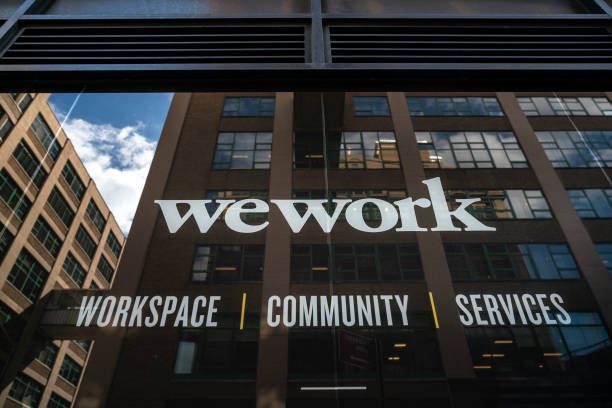WeWork Fighting to Remain Traded on the New York Stock Exchange
By Mark Hallum April 19, 2023 11:07 am
reprints
WeWork is on thin ice with the New York Stock Exchange (NYSE) after its stock price dipped below $1 per share for more than a month.
The coworking firm — which has struggled to keep its head above water for the last few years — announced Wednesday morning that it received a noncompliance notice from the NYSE that it could be delisted. WeWork leaders said the company will make an effort to avoid that outcome and will officially respond to the NYSE within 10 days with a plan to avoid becoming a penny stock.
WeWork’s stock first dipped below $1 in early March, jumped back up soon after, and then began a long fall on March 22 to its current price of 48 cents a share.
In a press release, WeWork said it has a six-month “cure period” to avoid getting delisted and can remain on the NYSE if, on the last day, it has “a closing share price of at least $1 and an average share price of at least $1 over the 30-trading-day period.”
WeWork did not immediately respond to a request for further comment.
The coworking giant had a bumpy road to becoming a public company that started in 2019 with a disastrous initial public offering process that eventually led founder Adam Neumann to depart as WeWork almost fell into bankruptcy. It ditched those plans but finally made it onto the NYSE in October 2021 through a special-purpose acquisition merger with BowX Acquisition Corporation.
Things haven’t been smooth sailing since it got listed on the stock exchange.
WeWork got 2023 off to a rough start with plans to cut 300 employees loose, close 40 locations and shrink its office space at Dock 72 in Brooklyn Navy Yards. The job cuts would mostly be among U.S. staff, Commercial Observer reported in January.
In early March, WeWork had begun a fundraising effort along with negotiations to restructure its $3 billion debt from SoftBank. The infusion of funds, with Yardi being a possible contributor, has the potential to provide enough money to support operating expenses for “at least a few years,” the New York Times reported at the time.
Mark Hallum can be reached at mhallum@commercialobserver.com.



